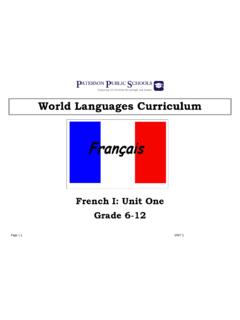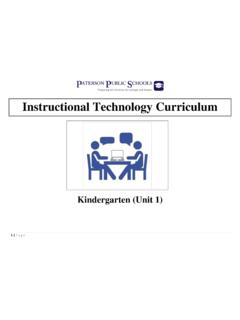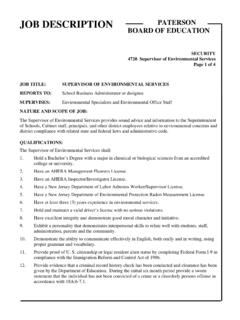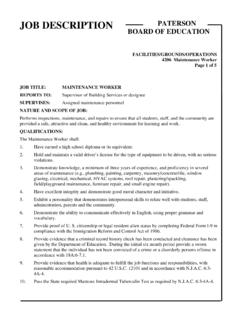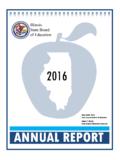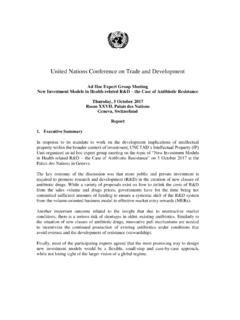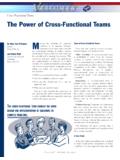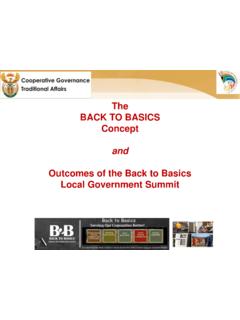Transcription of U.S. History I: Advanced Placement (Unit I)
1 1 Social Studies Curriculum History I: Advanced Placement (Unit I) 2 Course Description United States History I Advanced Placement is a full-year course designed to provide students with content, practical knowledge of History , practice in critical thinking activities, and experience in effective writing techniques that will better prepare them for not only the AP Exam, but also their future educational areas. The course begins with British colonization of America as students study how the early colonies were created and how early democratic traditions and basic freedoms were instilled into the core values of inhabitants of the New World. When the American Revolution unfolds and the United States is left to form its own government, an understanding of the relevance and importance of those values and freedoms is stressed. As America moves forward into the 19th century, the split in our nation s values and practices, most demonstrated through issues of slavery and immigration, are highlighted.
2 Even as industrialization and expansion make the powerful, the students come to see that those inherent cracks will result in Civil War, and soon thereafter, a new rebirth of the core values upon which our nation was founded. Students will enhance their critical thinking, analyzing and synthesizing skills often through document analysis along with document based question (DBQs) and open answer essay writing. Additionally, the use of maps, charts, time lines and other visual aids will be utilized and skills such as creating power points and outlining and essay writing will be developed. AP History I PACING CHART Unit Topic Duration Unit 1 Colonization and Settlement 6 Weeks Unit 2 The Revolution and New Nation 6 Weeks Unit 3 Expansion and Reform 6 Weeks Unit 4 Era of Turmoil 6 Weeks Unit 5 Reconstruction and Migration 6 Weeks Educational Technology Standards , , , , , , , , Technology Operations and Concepts Create a personal digital portfolio which reflects personal and academic interests, achievements, and career aspirations by using a variety of digital tools and resources Produce and edit a multi-page digital document for a commercial or professional audience and present it to peers and/or professionals in that related area for review.
3 Creativity and Innovation Apply previous content knowledge by creating and piloting a digital learning game or tutorial. Communication and Collaboration Develop an innovative solution to a real world problem or issue in collaboration with peers and experts, and present ideas for feedback through social media or in an online community. Digital Citizenship Demonstrate appropriate application of copyright, fair use and/or Creative Commons to an original work. Evaluate consequences of unauthorized electronic access and disclosure, and on dissemination of personal information. Compare and contrast policies on filtering and censorship both locally and globally. Research and Information Literacy Produce a position statement about a real world problem by developing a systematic plan of investigation with peers and experts synthesizing information from multiple sources.
4 critical Thinking, Problem Solving, Decision Making Evaluate the strengths and limitations of emerging technologies and their impact on educational, career, personal and or social needs. Career Ready Practices Career Ready Practices describe the career-ready skills that all educators in all content areas should seek to develop in their students. They are practices that have been linked to increase college, career, and life success. Career Ready Practices should be taught and reinforced in all career exploration and preparation programs with increasingly higher levels of complexity and expectation as a student advances through a program of study. CRP1. Act as a responsible and contributing citizen and employee Career-ready individuals understand the obligations and responsibilities of being a member of a community, and they demonstrate this understanding every day through their interactions with others.
5 They are conscientious of the impacts of their decisions on others and the environment around them. They think about the near-term and long-term consequences of their actions and seek to act in ways that contribute to the betterment of their teams, families, community and workplace. They are reliable and consistent in going beyond the minimum expectation and in participating in activities that serve the greater good. CRP2. Apply appropriate academic and technical skills. Career-ready individuals readily access and use the knowledge and skills acquired through experience and education to be more productive. They make connections between abstract concepts with real-world applications, and they make correct insights about when it is appropriate to apply the use of an academic skill in a workplace situation CRP3. Attend to personal health and financial well-being. Career-ready individuals understand the relationship between personal health, workplace performance and personal well-being; they act on that understanding to regularly practice healthy diet, exercise and mental health activities.
6 Career-ready individuals also take regular action to contribute to their personal financial wellbeing, understanding that personal financial security provides the peace of mind required to contribute more fully to their own career success. Career Ready Practices CRP4. Communicate clearly and effectively and with reason. Career-ready individuals communicate thoughts, ideas, and action plans with clarity, whether using written, verbal, and/or visual methods. They communicate in the workplace with clarity and purpose to make maximum use of their own and others time. They are excellent writers; they master conventions, word choice, and organization, and use effective tone and presentation skills to articulate ideas. They are skilled at interacting with others; they are active listeners and speak clearly and with purpose. Career-ready individuals think about the audience for their communication and prepare accordingly to ensure the desired outcome.
7 CRP5. Consider the environmental, social and economic impacts of decisions. Career-ready individuals understand the interrelated nature of their actions and regularly make decisions that positively impact and/or mitigate negative impact on other people, organization, and the environment. They are aware of and utilize new technologies, understandings, procedures, materials, and regulations affecting the nature of their work as it relates to the impact on the social condition, the environment and the profitability of the organization. CRP6. Demonstrate creativity and innovation. Career-ready individuals regularly think of ideas that solve problems in new and different ways, and they contribute those ideas in a useful and productive manner to improve their organization. They can consider unconventional ideas and suggestions as solutions to issues, tasks or problems, and they discern which ideas and suggestions will add greatest value.
8 They seek new methods, practices, and ideas from a variety of sources and seek to apply those ideas to their own workplace. They take action on their ideas and understand how to bring innovation to an organization. CRP7. Employ valid and reliable research strategies. Career-ready individuals are discerning in accepting and using new information to make decisions, change practices or inform strategies. They use reliable research process to search for new information. They evaluate the validity of sources when considering the use and adoption of external information or practices in their workplace situation. Career Ready Practices CRP8. Utilize critical thinking to make sense of problems and persevere in solving them. Career-ready individuals readily recognize problems in the workplace, understand the nature of the problem, and devise effective plans to solve the problem. They are aware of problems when they occur and take action quickly to address the problem; they thoughtfully investigate the root cause of the problem prior to introducing solutions.
9 They carefully consider the options to solve the problem. Once a solution is agreed upon, they follow through to ensure the problem is solved, whether through their own actions or the actions of others. CRP9. Model integrity, ethical leadership and effective management. Career-ready individuals consistently act in ways that align personal and community-held ideals and principles while employing strategies to positively influence others in the workplace. They have a clear understanding of integrity and act on this understanding in every decision. They use a variety of means to positively impact the directions and actions of a team or organization, and they apply insights into human behavior to change others action, attitudes and/or beliefs. They recognize the near-term and long-term effects that management s actions and attitudes can have on productivity, morals and organizational culture.
10 CRP10. Plan education and career paths aligned to personal goals. Career-ready individuals take personal ownership of their own education and career goals, and they regularly act on a plan to attain these goals. They understand their own career interests, preferences, goals, and requirements. They have perspective regarding the pathways available to them and the time, effort, experience and other requirements to pursue each, including a path of entrepreneurship. They recognize the value of each step in the education and experiential process, and they recognize that nearly all career paths require ongoing education and experience. They seek counselors, mentors, and other experts to assist in the planning and execution of career and personal goals. CRP11. Use technology to enhance productivity. Career-ready individuals find and maximize the productive value of existing and new technology to accomplish workplace tasks and solve workplace problems.

